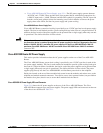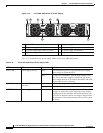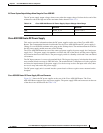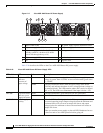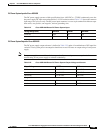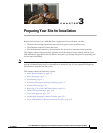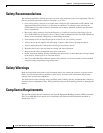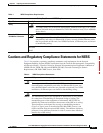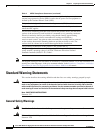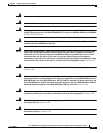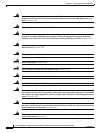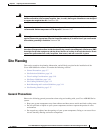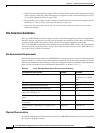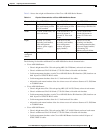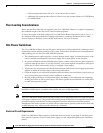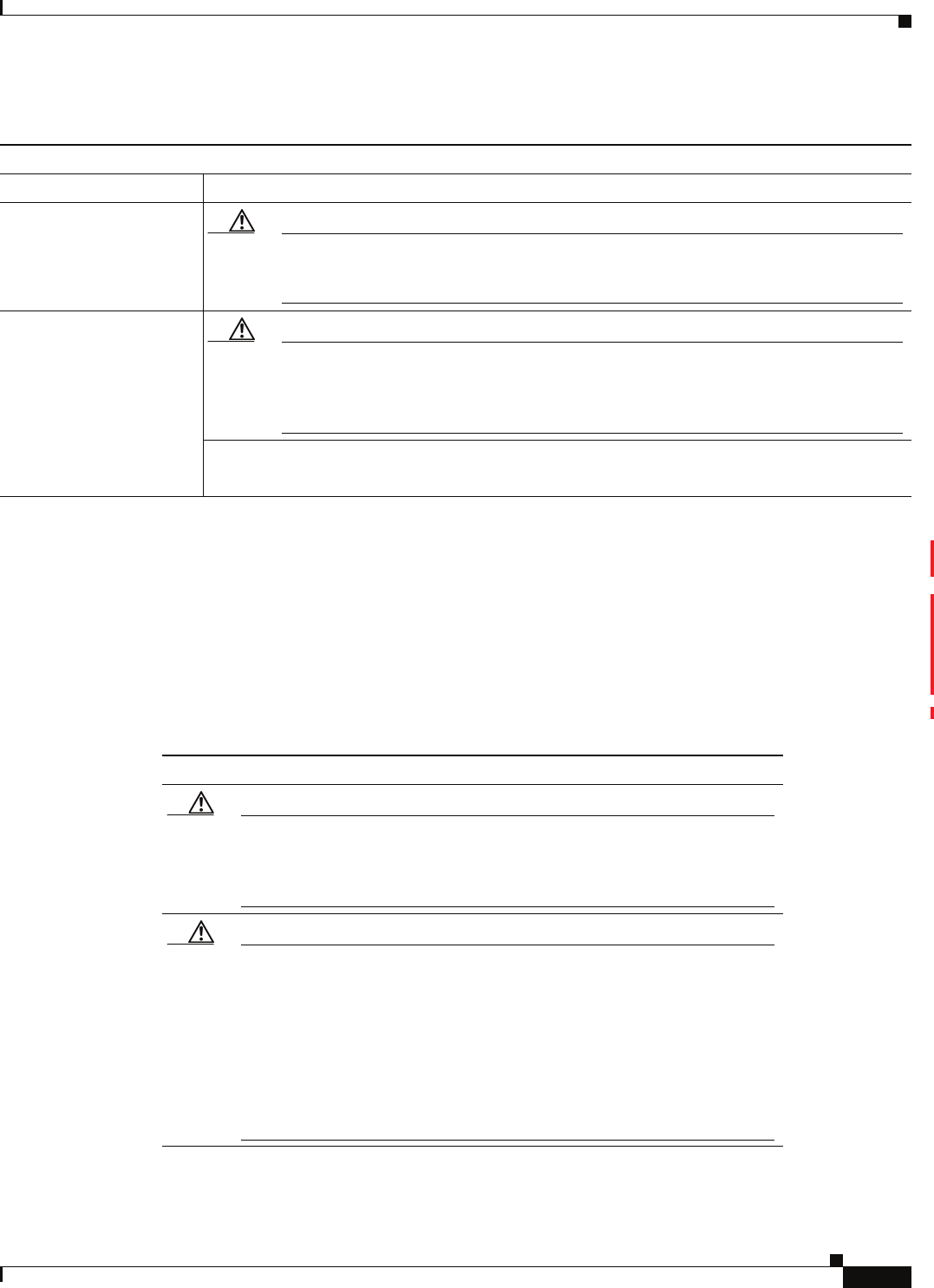
3-3
Cisco ASR 1000 Series Aggregation Services Routers Hardware Installation and Initial Configuration Guide
OL-13208-03
Chapter 3 Preparing Your Site for Installation
Cautions and Regulatory Compliance Statements for NEBS
Cautions and Regulatory Compliance Statements for NEBS
Table 2 lists cautions, regulatory compliance statements, and requirements for the Network
Equipment-Building System (NEBS) certification from the Telcordia Electromagnetic Compatibility
and Electrical Safety – Generic Criteria for Network Telecommunications Equipment (A Module of
LSSGR, FR-64; TSGR, FR-440; and NEBSFR, FR-2063) Telcordia Technologies Generic
Requirements, GR-1089-CORE, Issue 4, June 2006.
Table 1 NEBS Compliance Requirements
Safety Compliance and NEBS Requirements
Specification Description
Safety
Caution To comply with Class A emissions requirements, shielded-twisted pair T1/E1 cables
must be used with the 8-port channelized T1/E1 SPA interface in any Cisco ASR1000
Series chassis.
Telcordia NEBS
GR-1089-Core Statement
Caution To comply with the Telcordia GR-1089 NEBS standard for electromagnetic
compatibility and safety, for Ethernet RJ-45 ports, use only shielded Ethernet cables
that are grounded on both ends. In a NEBS installation, all Ethernet ports are limited
to intrabuilding wiring.
GR-1089
GR-63
Table 2 NEBS Compliance Statements
Attach an ESD-preventive wrist strap to your wrist and to a bare metal surface.
Caution To comply with the Telcordia GR-1089 NEBS standard for
electromagnetic compatibility and safety, for Ethernet RJ-45 ports, use
only shielded Ethernet cables that are grounded on both ends. In a NEBS
installation, all Ethernet ports are limited to intrabuilding wiring.
Caution The intrabuilding ports of the equipment or subassembly is only suitable
for connection to intrabuilding or unexposed wiring or cabling. The
intrabuilding ports of the equipment or subassembly MUST NOT be
metallically connected to interfaces that connect to the OSP or its wiring.
These interfaces are designed for use only as intrabuilding interfaces
(Type 2 or Type 4 ports as described in GR-1089-CORE, Issue 4), and
require isolation from the exposed OSP cabling. The addition of primary
protectors is not sufficient protection in order to connect these interfaces
metallically to OSP wiring.



